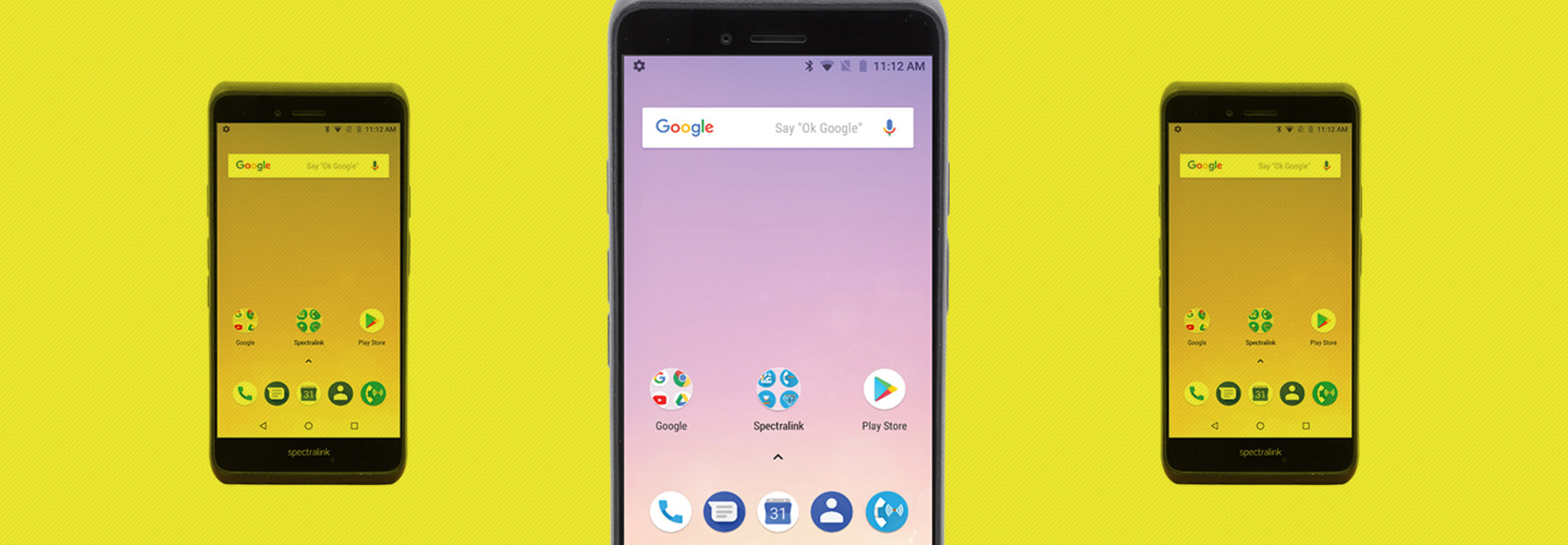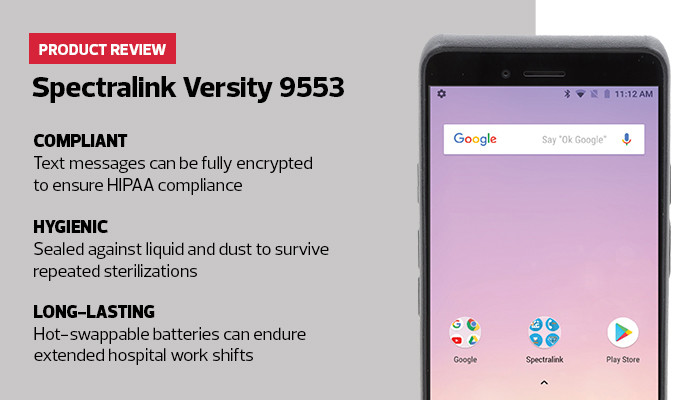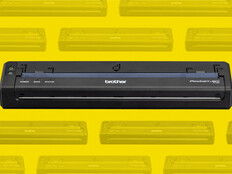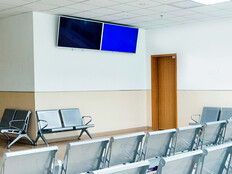How the Spectralink Versity 9553 Smartphone Stands Up to the Elements
One of the biggest advantages of mobile devices is that they help users save time, allowing them to look up facts and records or confer with colleagues without having to run back to an office or find an available computer. In a busy healthcare system, that power can expedite patient care and even save lives.
But to be effective, mobile devices must be able to survive the often unforgiving elements of healthcare facilities — hazards that can push typical smartphones beyond their limits.
Devices designed to withstand things such as drops, vibration, water ingress and other environmental factors generally use the military’s MIL-STD-810G testing suite to measure their fitness. Although it’s unusual for nonmilitary devices to face such testing, the tough demands of healthcare make mobile communication tools fitting candidates for ruggedization.
The Spectralink Versity 9553 has been ruggedized against shock and also protected against water and dust.
To test its durability, I dropped the Versity onto each of its sides and surfaces from as high as 4 feet. Per military standard, these drops were made on plywood sitting over concrete, so there were no soft landings. Drops were made while the device was powered both on and off. In all cases, the Versity either booted right up (if it had been turned off for the drop), or it didn’t stopped running apps when it fell.
To test for dust and water ingress, I used the industrial protection marking scale. The Versity is rated as IP68, meaning it is totally dust- and waterproof — especially important for healthcare workers because it means that harmful chemicals or biological fluids can’t get into the device. It also means that water or alcohol-based cleaners can be used to sterilize the Versity without damaging the unit.
For this test, I fully submerged the Versity 9553 in a large flask of tap water for 30 minutes. The device was powered on at the time, and it didn’t stop or even seem to mind its impromptu dip. Once removed from the test flask, it was dried with a towel and checked for functional problems or damage, but it was unharmed by the water.
Not only is the Spectralink Versity 9553 designed to work in healthcare environments and protect patient data, but it can also stand up to unexpected events that occur during use.
SPECIFICATIONS
DISPLAY: 5.2-inch touch screen
PROCESSOR: 2.1GHz octa core 64-bit processor
RAM: 4GB OS: Android 8.1 Oreo
HARD DRIVE: 64GB flash memory
DIMENSIONS: 6x3x0.5 inches
WEIGHT: 7.55 ounces
Want early access to more content like this? >>> Sign up to become a HealthTech Insider for access to our premium content library.










